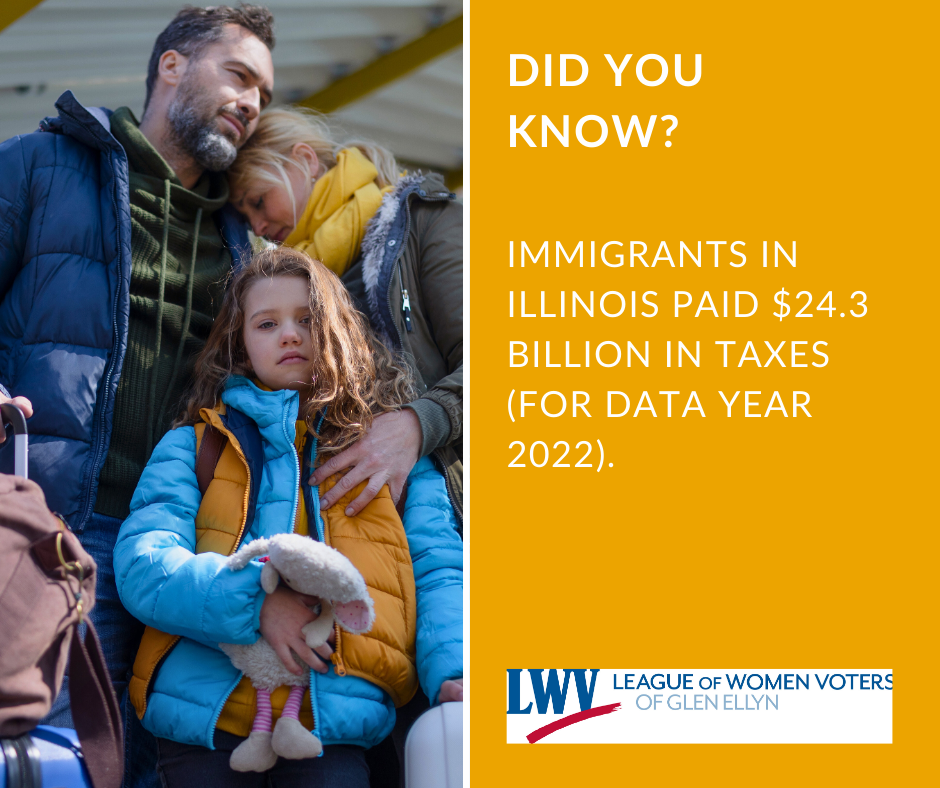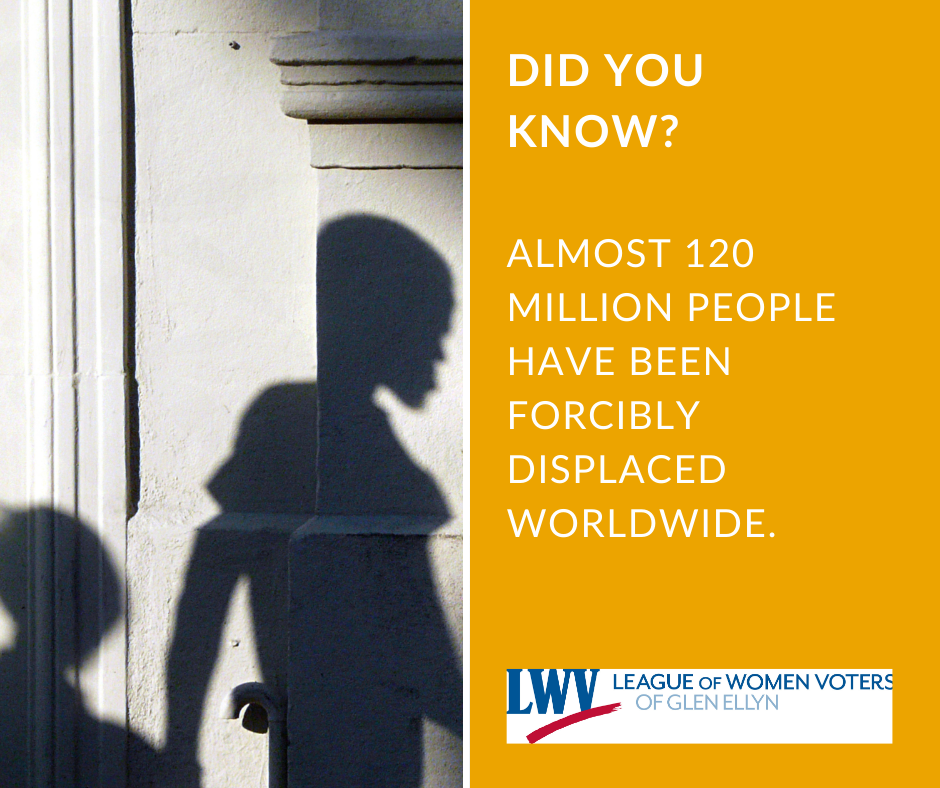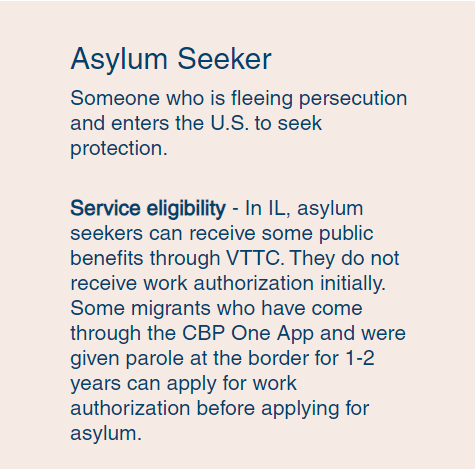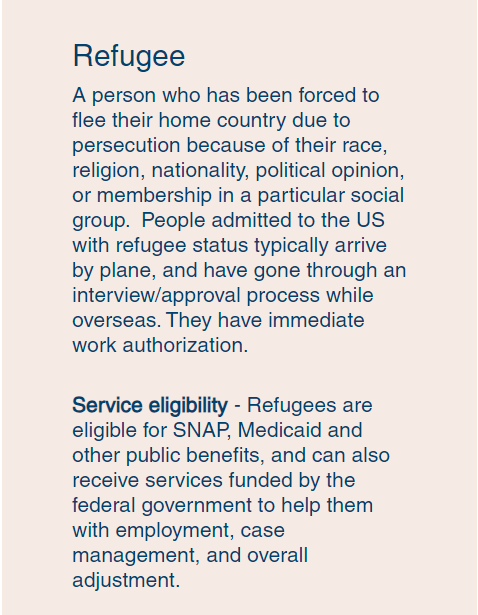
Immigration
Immigration
The League believes that immigration policies should promote reunification of immediate families; meet the economic, business and employment needs of the United States; and be responsive to those facing political persecution or humanitarian crises.
Did You Know?
-

Immigrants pay taxes.
Immigrants in Illinois paid $24.3 billion in taxes (for data year 2022). Immigrant households—and this includes those with status as well as undocumented--contribute hundreds of billions of dollars in federal, state, and local taxes and are contributing billions of dollars to the U.S. economy.
-

17.6% of the Illinois labor force are immigrants.
They represent 25.3 % of Illinois entrepreneurs, 24.6 % of Illinois STEM workers, 18.7% of Illinois nurses.
Illinois immigrants are 14.3 percent of the state’s population. They are local business owners, workers, tax payers, and our neighbors. They help make up Illinois’s diverse communities and contribute to local and state economies.
Did You Know?
-

Noncitizens are NOT voting in our federal and state elections.
There are systems in place to deter noncitizen voting, and those who violate the law face prison and deportation. Additionally, according to the Brennan Center, “Every legitimate study ever done on the question shows that voting by noncitizens in state and federal elections is vanishingly rare.”
-

Immigrants have rights in Illinois.
Regardless of their citizenship or immigration status, every resident of Illinois has constitutional rights and state’s rights that protect them.
-

Since August 2022, over 44,000 new arrivals have come to the Chicagoland area from the U.S. southern border.
Most of the new arrivals are from Venezuela. Over 8 million people have fled Venezuela in the past decade because of political unrest and economic instability. Most of those fleeing Venezuela have gone to nearby Peru, Columbia, and Ecuador, but thousands have taken the dangerous journey through the Darien Gap between Columbia and Panama, then traveled through Central America and Mexico to migrate to the United States to request asylum.
-

Over 2,300 Afghans and 30,000 Ukranians have settled in the Chicagoland area.
Over 2,300 Afghans and 30,000 Ukrainians have settled in the Chicagoland area in recent years. This is in addition to the 44,000 new arrivals. Both groups entered the United States under humanitarian parole, a temporary status that allows these individuals to enter the U.S. for humanitarian reasons, such as fleeing a crisis or a war.
-

Almost 120 million people have been forcibly displaced worldwide.
As of the end of 2023, almost 120 million people have been forcibly displaced worldwide due to conflict, persecution, violence, or human rights violations.
-

Undocumented immigrants are those who have illegally entered the United States without inspection or legally entered the United States but whose visas have expired.
According to the U.S. Department of Homeland Security:
“The unauthorized immigrant population is defined as all foreign-born non-citizens who are not legal residents, including naturalized citizens, persons granted lawful permanent residence, persons granted asylum, persons admitted as refugees, and persons admitted as resident nonimmigrants (i.e., students and temporary workers, as opposed to tourists) who have unexpired authorized periods of admission. Most unauthorized immigrants either entered the United States without inspection or were admitted temporarily and remained past the date they were required to depart.”




